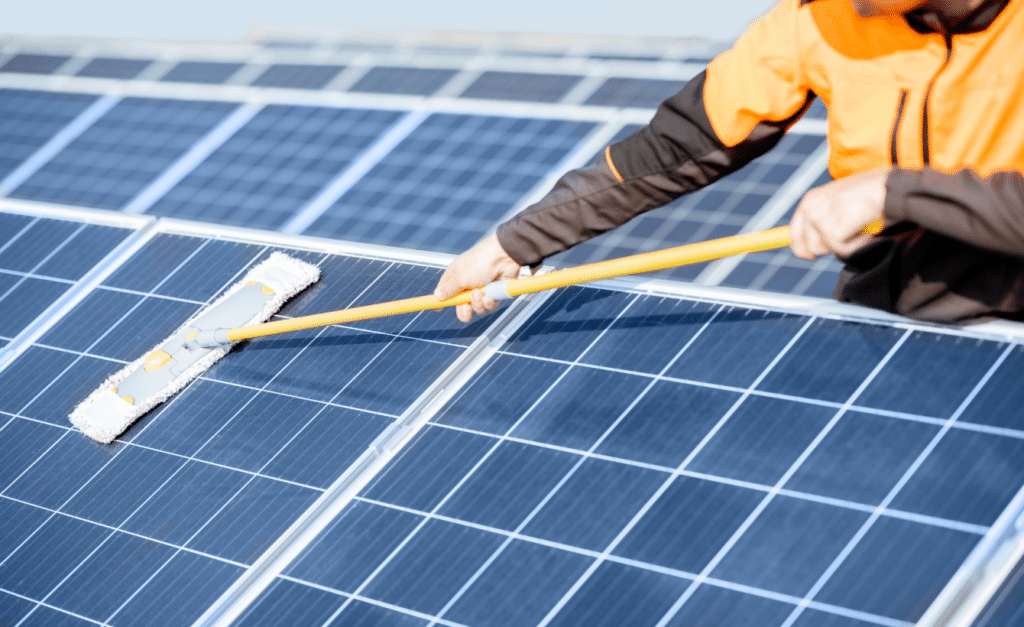Are ‘Free Solar Panels’ Really Free? (2024 Guide) – MarketWatch
The phrase “free solar panels” is a misleading marketing tactic some companies use. There are no companies or government programs that offer free solar panels. When you see the phrase “free solar panels,” it can mean one of the following things:
- Solar lease agreement
- Power purchase agreement (PPA)
- Government program for low-income households
If the offer doesn’t fit in any of the above categories, it may be a scam.
What Is a Solar Lease?
Having a solar lease is like renting a car or apartment. A solar company installs panels on your property for $0 upfront, and you sign a contract in which you agree to pay a monthly fee for using the equipment. Some companies describe lease contracts as giving you “free solar panels” because there is no initial investment, but the term is misleading because you still have to pay a monthly fee.
Despite this misnomer, there are advantages and disadvantages to solar leases. Let’s examine what a solar lease is and is not so you can decide if it is the right option for you.
What We Like About Leases
The main advantage of a lease is you avoid the initial cost of a solar installation, which is around $17,094 for a 6 kW system. You can also go solar at $0 upfront with loan financing, but solar leases are less demanding on your credit score. A solar lease also makes the system provider responsible for maintenance, which means your solar company must assume the cost of any repairs and part replacements.
We at the MarketWatch Guides team recommend a solar lease if you do not have access to low-interest solar loans. Leases have higher monthly payments but also simpler application requirements than loans.
What We Don’t Like About Leases
The main disadvantage of a solar lease is having to share your power bill savings in the form of monthly payments. Since you do not own the solar panels directly, you cannot claim financial incentives like the 30% federal tax credit. Instead, the solar company that provides the lease claims the benefits because it is the legal owner of the system. Two other lease details to note:
Solar leases can also have a term of up to 25 years, with rising payments and significant penalties for early termination. If you plan to sell your home during this period, you will have to look for a buyer who is willing to assume the rest of the lease.
You can achieve higher savings over time with a solar loan — although you pay interest, the monthly payments are typically much lower than that of a lease contract.
What Is a Power Purchase Agreement (PPA)?
A solar power purchase agreement (PPA) is similar to a lease, but you do not have a fixed monthly payment. Instead, you pay for the electricity the solar panels generate, similar to how you purchase grid electricity. To make the deal attractive, solar companies often set the solar PPA price lower than local electric rates. Some companies also refer to PPA contracts as giving you “free solar panels” because there is no upfront payment required, but this is not technically true since you still have to pay for energy generation.
What We Like About PPAs
The main advantage of a solar PPA is paying for the electricity generated each month instead of having a fixed fee. For example, if the solar panels have low energy production during a winter month with cloudy weather, your PPA payment is also reduced. Under a traditional lease, you pay the same fee regardless of solar panel performance.
A solar PPA offers the same advantages as a traditional solar lease with a $0 upfront cost and delegating maintenance to the system provider. Solar PPAs also tend to have less demanding application requirements than solar loan programs.
What We Don’t Like About PPAs
A solar PPA has the same downsides as a solar lease — you share your energy savings with the provider while missing out on solar incentive programs. PPA contracts can also have a term of up to 25 years with penalties for early termination. Many solar PPAs also have an escalator clause, which means the kilowatt-hour price of energy increases along with local utility rates. Additionally, a PPA can make it harder to sell your residence because the new owner must be willing to assume the contract.
If you can qualify for a solar loan or choose a cash purchase to cover the upfront system cost, you can expect much higher savings in the long run.
What Are Government Solar Programs?
Government-subsidized solar programs do exist, but they are rare and only available for low-income households. These programs are normally managed by government agencies, regulated utilities or nonprofit organizations. Private companies may participate as approved installers, but they are subject to stringent guidelines.
To summarize, “free” solar panel offers are not always scams, but they are misleading. Many companies are more transparent in their sales pitch: They will clearly state that the upfront payment is zero, but you must sign a solar lease or PPA and make ongoing payments to the solar company.
This post was originally published on 3rd party site mentioned in the title of this site


